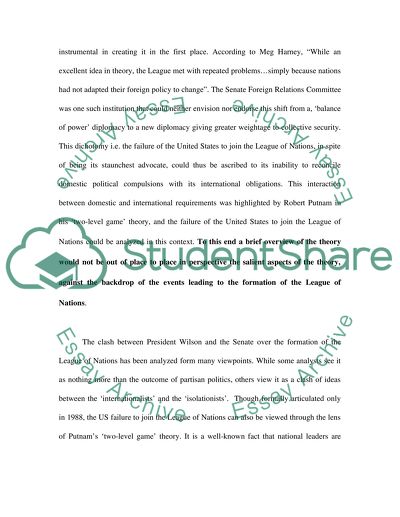Cite this document
(“The League of Nations Essay Example | Topics and Well Written Essays - 2250 words”, n.d.)
Retrieved from https://studentshare.org/miscellaneous/1523389-the-league-of-nations
Retrieved from https://studentshare.org/miscellaneous/1523389-the-league-of-nations
(The League of Nations Essay Example | Topics and Well Written Essays - 2250 Words)
https://studentshare.org/miscellaneous/1523389-the-league-of-nations.
https://studentshare.org/miscellaneous/1523389-the-league-of-nations.
“The League of Nations Essay Example | Topics and Well Written Essays - 2250 Words”, n.d. https://studentshare.org/miscellaneous/1523389-the-league-of-nations.


